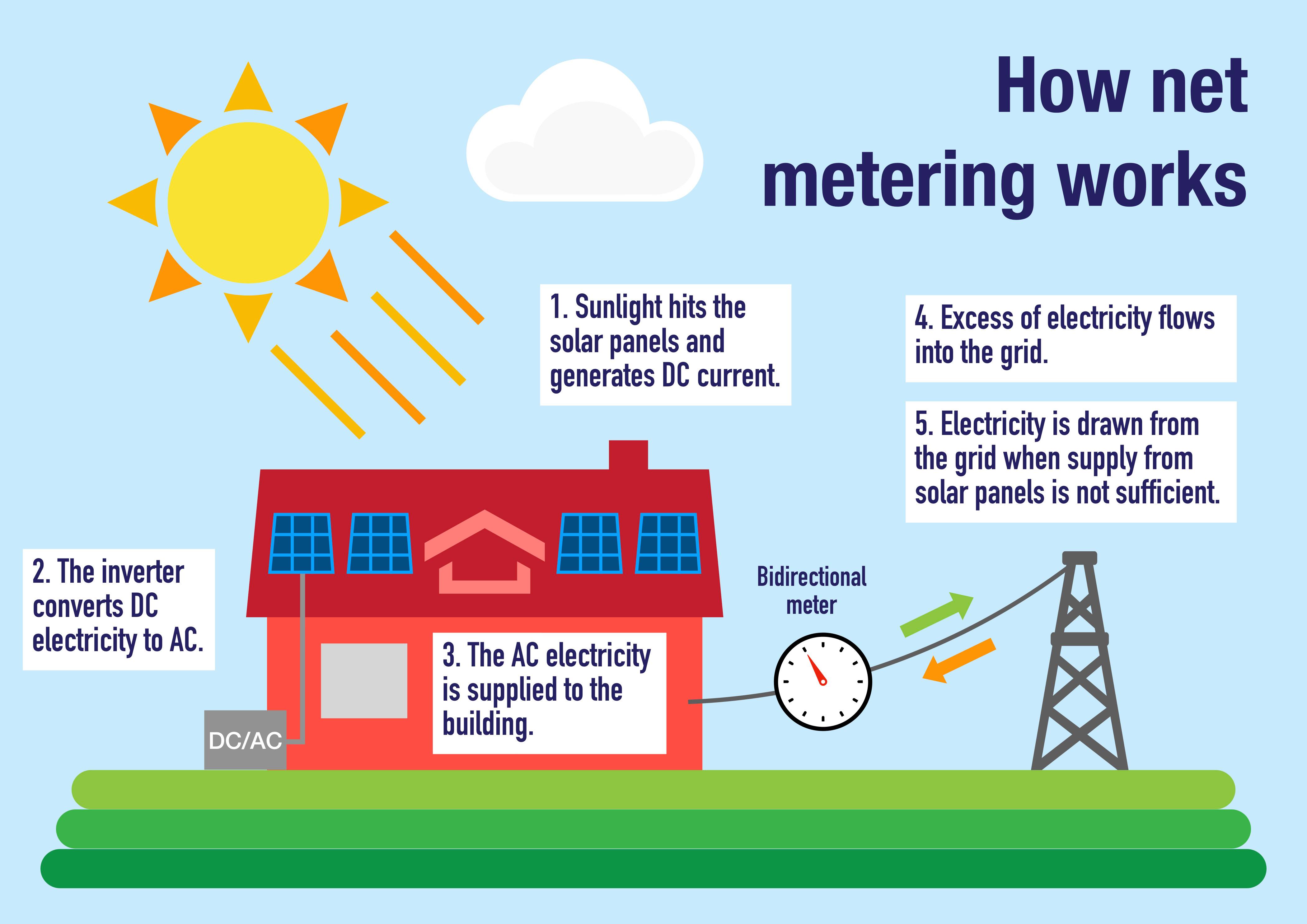What Is Net Metering and How Does It Work?
Net metering is a billing arrangement between utility companies and their customers who have installed renewable energy generation, like solar panels on their property. Under net metering, the customer’s meter tracks both the amount of energy they consume from the grid as well as the amount of renewable energy they generate and send back to the grid. The customer is only charged for their net energy use – that is, the difference between the amount of energy they consume and the amount they generate.
Net Metering – How Does It Work?
In order for net metering to work, customers need to have a bi-directional meter installed on their property by their utility company. This type of meter can track both how much energy is consumed from the grid as well as how much renewable energy is generated and sent back to the grid.
In most net metering arrangements, when a customer generates more renewable energy than they are using at that moment, the extra energy is sent back to the grid and the customer’s meter spins backward. This energy offsetting can happen throughout the day and is especially beneficial during sunny days or windy days when renewable energy production is high but consumption is low. For example, a customer with rooftop solar panels may generate more energy than they use during the daytime when they are away at work and their home is not using much electricity.
At the end of the billing period, the customer’s net usage is calculated based on their meter reading. If a customer has generated more energy than they’ve used, they will receive a credit on their bill. If a customer has used more energy than they’ve generated, they will be charged for the net amount of energy they’ve consumed from the grid.
Benefits of Net Metering
Net metering can provide many benefits for both customers and utility companies, including:
– Customers with renewable energy generation can offset their energy consumption and save money on their electricity bills.
– Customers can contribute to the grid by generating their own renewable energy and helping to reduce demand on the grid during peak times.
– Utility companies can benefit from net metering by having more customers generate their own renewable energy and lessen the load on the grid.
Net Metering Works to Save You Money on Your Electric Bill
Net metering is a program that allows you to save money on your electric bill by generating your own electricity. If you have a solar panel, net metering allows you to sell the excess electricity you generate back to the grid. This means that you can offset the cost of your electric bill with the money you make from selling your excess electricity. In addition, net metering also helps to encourage the use of renewable energy sources by providing an incentive for people to generate their own electricity. As a result, net metering is a win-win for both consumers and the environment.
Net Metering is Beneficial for Both Customers and Utility Companies
Net metering is beneficial for both customers and utility companies because it helps to encourage the use of renewable energy and it helps to improve the overall efficiency of the electrical grid. For customers, net metering can provide a significant financial incentive to invest in renewable energy generation, such as solar panels. In addition, net metering can help to lower electric bills by allowing customers to offset their consumption with their own generation. For utility companies, net metering can help to reduce the need for new power plants and transmission lines, and it can also help to improve the stability of the electrical grid. In addition, net metering can help to promote the use of renewable energy, which has environmental benefits.
Net Metering Helps to Reduce Demand on the Grid
Net metering is a valuable tool that helps to reduce demand on the grid. When net metering is available, customers with solar panels can receive credits for the electricity they produce. This excess electricity is sent back to the utility company, and the customer receives a credit on their bill. As a result, net-metered customers are only charged for the net amount of electricity they use. In addition, net metering can help utilities avoid the need to build new power plants or upgrade existing ones. By reducing demand on the grid, net metering helps to save everyone money.
History of Net Metering and How It Has Evolved Over Time
Net metering has been in place since the early days of utility-scale solar development in the 1970s and has continued to evolve as the solar industry has grown. net-metering policies have been adopted in 43 states and Washington D.C., with each state tailoring net-metering rules to meet the specific needs of their jurisdictions. The evolution of net metering has been driven by a desire to support solar development and allow consumers to invest in clean energy generation.
Overall, net metering is a win for customers and utility companies alike. It helps to promote renewable energy generation while also providing financial incentives for customers to generate their own clean energy. If you’re considering installing renewable energy on your property, be sure to check with your utility company to see if net metering is available in your area.


